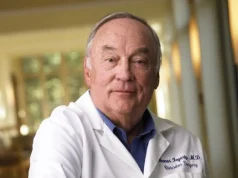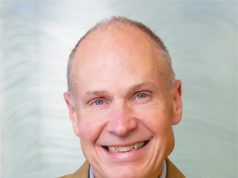A few years ago I accepted an offer to work in a small community hospital. It was the only medical facility in a small town and was located in a semirural area. The nearest referral center was about 75 miles away.
At that time the hospital employed a single full-time vascular surgeon who for obvious reasons was expected to provide round-the-clock coverage and who had rather limited opportunities for educational and recreational escapes. Leaving town meant transferring his patients to the “hospitalist” service for their postop care. Patients who truly needed vascular services had to be transferred to a tertiary care facility by ambulance. Alternatively, the hospital might seek locum tenens coverage if any were even available. However, the cost was substantial, and the productivity was minimal.
Up to that point I had spent most of my career in major high-volume teaching hospitals, along with a stint in solo practice running on the 24/7 never-take-a-holiday treadmill. At age 60+ I was by no means ready to hang up my scalpel, but I was more than willing to earn less money in return for less work (and less stress).
I then had the opportunity to meet this surgeon and representatives of the hospital administration. We discussed a plan to satisfy the interests of all participants. The hospital hired me as a permanent but part-time employee. For a half salary I would work 26 weeks per year, generally 2 weeks on duty at a time and 2 weeks off. As the bureaucrats would put it, I was a 0.5 FTE.
Overall, the arrangement worked pretty well. The surgeon was finally able to turn off his pager, go to meetings, and take vacations. He even enjoyed the small bonus of finally having a colleague to talk to. The hospital now had blanket coverage of the vascular service and even saw a moderate uptick in volume. The patients finally had rational continuity of care. I was able to remain fully engaged with a somewhat smaller practice. I could schedule elective case and provide long-term follow-up care relatively seamlessly despite my limited hours. And of course, I now had more free time.
I would also often engage friends and colleagues in my own cohort of aging practitioners, especially at conferences and seminars. They generally expressed considerable interest in my new practice arrangements. The reaction I received with surprising regularity was “Where do I sign up?”
Where indeed? I had apparently tapped into a reservoir of interest among fellow senior surgeons for a way to more gradually wind down their remaining years in practice. Yet few were in situations that offered or even allowed that level of flexibility. For most, the late career practice paradigm remained the all-too-familiar one of galloping along at full speed until the last suture was tied, then quitting cold turkey. Take all the skill, experience, and passion and place it all into the back of a golf cart.
The particulars of my situation would clearly not be universally applicable. However, I do believe that scaled-down practice options can and should be both productive and cost effective under a variety of circumstances. If we were to think more creatively, more careers might wind up more gracefully. In fact, I believe that kinder and gentler transitions at both ends of our careers would not only provide added satisfaction to the elders but could also expand mentoring opportunities for our colleagues just entering practice.
The current debate about the preparedness of new graduates is based upon the presumption that a specific number of years or a specific number of cases suddenly qualifies someone to function with total autonomy. This myth has never really been true and may or may not be even less so now. As it is currently fashionable to compare OR practices with aviation safety, allow me to suggest as an analogy that no one would confuse the final readiness for solo flight with the ability to captain a 747. What better way to guide the maturation of a professional than to have an experienced copilot? But that is probably a subject for another essay.
Dr. Rivers is a former associate professor of surgery at Albert Einstein College of Medicine, Bronx, New York.












